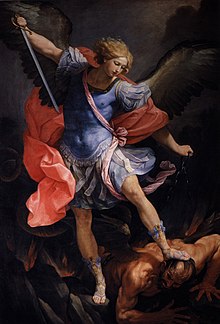| Herr Gott, dich loben alle wir | |
|---|---|
BWV 130 | |
| Chorale cantata by J. S. Bach | |
 | |
| Occasion | Michaelis, feast of Michael |
| Chorale | "Herr Gott, dich loben alle wir by Paul Eber |
| Performed | 29 September 1724: Leipzig |
| Movements | six |
| Vocal | SATB choir and solo |
| Instrumental | |
Herr Gott, dich loben alle wir (Lord God, we all praise you), BWV 130, is a chorale cantata by Johann Sebastian Bach for the Feast of archangel Michael (German: Michaelis; 29 September). The oldest known version of the cantata (BWV 130.1) was performed on that feast day in 1724 during Bach's second year in Leipzig. The cantata is scored for SATB soloists and choir, three trumpets, timpani, traverso, three oboes, strings and continuo.
The text of the cantata, which is in the chorale cantata format which Bach developed for his second cantata cycle, is based on Paul Eber's 1554 Lutheran hymn in twelve stanzas "Herr Gott, dich loben alle wir". This hymn is a German version of Philipp Melanchthon's 1539 "Dicimus grates tibi". The hymn tune of the Lutheran chorale, known in English as Old 100th (Zahn Nr. 368), comes from the 1551 second edition of the Genevan Psalter.
An updated version of the cantata, BWV 130.2, was performed in Leipzig between 1732 and 1735. A manuscript which was likely written in the second half of the 18th century, contains two variant versions of the cantata. Whether Bach had anything to do with these versions is not known: a chorale setting which only occurs in these variants was adopted as No. 31 in second Anhang of the Bach-Werke-Verzeichnis, that is the Anhang of doubtful works.